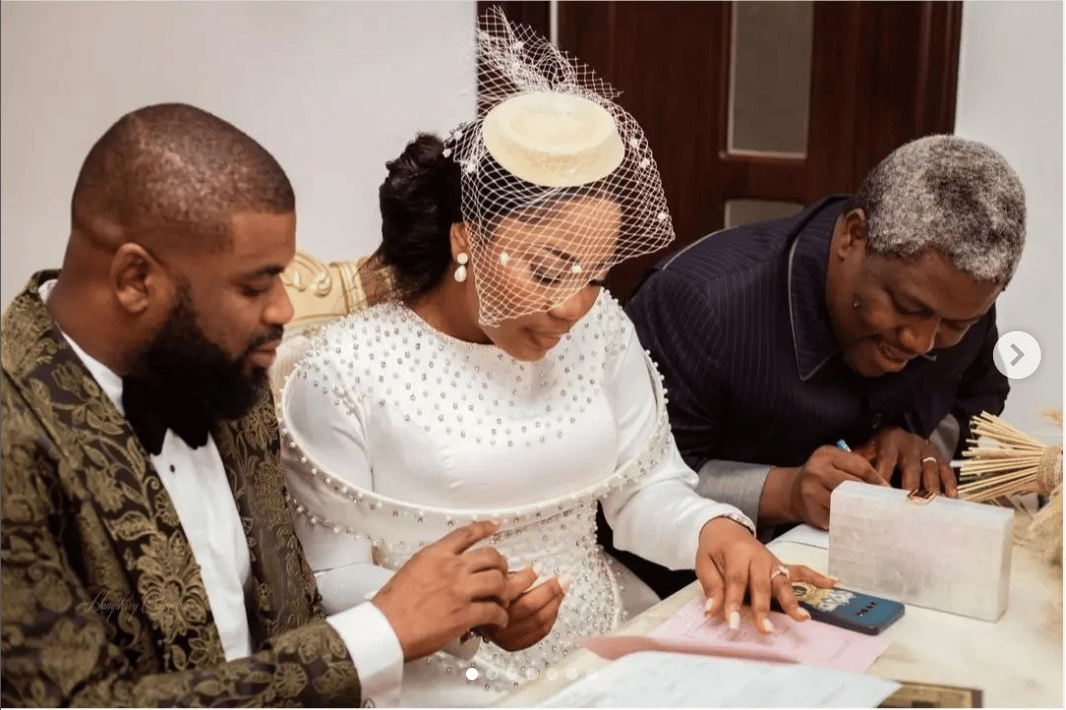The organizers of the just concluded 22nd Commonwealth in Birmingham, UK deserve high praise for delivering an event at the Alexander Stadium in the West Midlands that proved to be a triumph of art, culture, multi-sports glory and remarkable diversity. This was the first carbon-neutral Commonwealth Games (CWG) to be organized, thus a pacesetter for other multi-sports events hereafter. It was also like no other Commonwealth Games before it, with the inclusion of more games and medals on offer for women's sports – for the first time, women's cricket was introduced, in addition to eight para events that were integrated to further highlight the themes of inclusivity and diversity. The last time the UK hosted the “Friendly Games” as the CWG is also known was 20 years ago in Manchester, this year’s event, 10 years after the 2012 London Olympics, was bigger and coming in the year of the Queen’s Platinum, it has been a befitting tribute to the shared Commonwealth heritage, the city of Birmingham itself, and to all the athletes for whom the Friendly Games provides opportunities for self-realization beyond the thrill of participation or attendance.
Our high praise for Birmingham and the UK is not misplaced given the challenges that the hosts had to grapple with. The city of Durban was originally chosen as the next host of the 2022 Games as far back as 2015, but when Durban had to withdraw due to financial constraints, Birmingham volunteered to be the host in 2017, thus saddled with a shorter time for preparation ahead of the 2002 Games. Then COVID-19 up-ended the entire world, creating global process and supply disruptions, lockdowns and shutdowns and an inevitable re-ordering of processes with cost implications. Yet, despite this, Birmingham delivered. The opening ceremony of the Games on July 28 has been adjudged one of the most colourful ever, a celebration of diversity with prominent thematic motifs including equality of all persons and races, and properly toned reminders of culture, art and history: William Shakespeare, Samuel Johnson, Edward Edgar, Charlie Chaplin.
The high point of the opening was the gigantic automaton Bull of Birmingham charging into the stadium, which was eventually tamed. Duran Duran, Spice Girls. A festive musicality filled the air. Prince Charles and the Duchess of Cornwall drove into the arena. Malala Yousafzai, the Nobel Laureate who adopted Birmingham as her new home, after she was shot by the Taliban in Afghanistan in 2012, also gave a speech on the importance of girls’ education. The Commonwealth comprises 72 nations and territories, most of which were formerly under the British Empire, representing 2.5 billion people of the world. This year, the Games had in attendance 6, 500 athletes competing in 280 medal events. It started on a high note. It ended on an even higher note, with UB40, Goldie and other global artists performing and Australia topping the medals table with 174 medals.
History was made. I note, in particular, the record set by 72-year-old Rosemary Lenton of Scotland winning the gold medal in para women’s pairs bowling with Pauline Wilson, 58. Birmingham has the most youthful population in the whole of Europe, 40% of its population is under the age of 25, and yet at this year’s Games, Scottish ladies, Lenton and Wilson proved that age is no barrier. But of course, the bigger excitement for me was the performance of the Nigerian contingent at the Games. This was our country’s 15th appearance at the Games, we sent a total of 93 athletes (41 men and 52 women) competing in 7 sports – athletics, boxing, judo, para powerlifting, table tennis, weightlifting and wrestling, but this was our best outing ever at the CWG, a firm, redoubtable, confirmation that Nigeria is a country of champions, who only need to be given the opportunity and the enabling environment for their talents to flower. At the CWG 2022, Nigeria finished seventh on the medals table with a total of 35 medals – 12 gold, nine silver and 14 bronze medals. The last time Nigeria did something faintly close to this was at the 1994 Commonwealth Games in Victoria, Canada, when the country got 11 gold medals, 13 silver and 13 bronze, and also at the 2014 Games in Glasgow, Scotland.
This year’s performance would be unforgettable, particularly with the record-breaking performance put up by the Nigerian team. The harvest of medals began with Adijat Olarinoye setting the new Commonwealth record in weightlifting, 55 kg category, lifting a total of 203 kg, Rafiatu Lawal also set a new record in the 59 kg weightlifting with a total lift of 206 kg, Folashade Oluwafunmilayo also set a new record in women’s heavyweight powerlifting, winning the gold medal, her compatriot, Bose Omolayo, took the silver medal in the same event. Tobi Amusan whose phenomenal performance at the World Athletics Championships in Oregon, US had been celebrated two weeks earlier when she set a new record in the 100 m hurdles, soon proved that her earlier performance was truly the stuff of genius when she repeated the same feat at the CWG and thus defended her title as indisputable Nigeria, African, Commonwealth and the World Champion in 100 m hurdles.! She is in addition the first Nigerian athlete to successfully defend a Commonwealth Games 100m hurdles title, having won the same in Gold Coast, Australia in 2018. Nwachukwu Goodness provided a taste of additional goodness to Nigeria’s performance when she won gold and set a new record in women's discus throw with just her first two throws! Another hero in discus is Chioma Onyekwere. Nigeria also took another gold and set another record when the quartet of Tobi Amusan, Favour Ofili, Rosemary Chukwuma and Grace Nwokocha won the gold medal in the 4 x 100 women’s relay. Ese Brume placed a nice cap on it all when, on Sunday, she also took the gold medal in the long jump, breaking the record in the event twice on the same day!
It has been said that the ladies did better than the men, winning nine out of all the 12 gold medals for Nigeria. This is not to make light of the effort of the men who won medals for Nigeria: Udodi Onwuzurike, Favour Ashe, Alaba Akintola and Raymond Ekewvo won a bronze medal in the men’s 4 x100 relay. Edidiong Umoafia also won a bronze in 67kg weightlifting. Overall, it was a good outing for Nigeria. We may not have done well in table tennis – the Ouadri Aruna-led men’s table tennis team was beaten in the semi-finals by India, dashing our hopes. Our women’s table tennis team could not advance to the quarter finals, having been defeated by the English team. There was also some initial disturbance about sports kits and Nigeria having to engage a British company MG Sportswear to work round the clock to produce last-minute kits for the athletes – this is a perennial problem with Nigeria. We never manage to get ready until the last minute. Or after. Poor management is the bane of sports in Nigeria, and you can add to that - politics, greed and corruption. Nonetheless, what stands out after the country’s outing in Birmingham is the epochal performance of the Nigerian contingent, more specifically, the female athletes, and the Ministry of Sports which tried to ensure that there was no scandal. That in itself should be considered an achievement. The contingent deserves applause.
Those special moments on the podium at the World Athletics Championships two weeks ago and now at the Commonwealth Games have given us something to be joyful about as a country - at a time when everything appears dim in Nigeria: public-owned universities have been shut down since February 14, the national currency, the Naira, has depreciated so badly in value many families cannot afford to buy a loaf of bread on the family menu because it is now so expensive, inflation is about 18.6%, unemployment - 33.3%, terrorists are getting bolder by the day, they are even threatening to abduct the President and other political leaders…and just in the midst of all that Tobi, Ese, Favour, Goodness and others have made us proud, and put a smile on our lips.
Nigeria could have done better if we had participated perhaps in more events, but the starting point would be for the country to develop the existing potential in other sports. We need world-class facilities to train and build athletes. Many of the Nigerian athletes who often do well in major competitions, may have been discovered at home, but they tend to get to the peak of their potential through foreign exposure and training. It should be possible to generate and keep world talents at home by making our environment more sports-friendly. Once upon a time, Ogbe Stadium in Benin City, Rowe Park and the National Stadium in Lagos, and Liberty Stadium in Ibadan were rated as world-class sports facilities. These days, these and even newer sports facilities merely survive for about a year or two before they go into disrepair despite huge amounts spent on them. Frustrated, many of our athletes take up the citizenship and jerseys of other countries. This is why the dedicated ones who still give us podium moments at competitions are true heroes and sheroes. What remains is to ensure that our 2022 CWG patriots get the befitting reception that they have earned, and of course, nobody has talked about the ethnic identity of these achievers as we all share in their glory as Nigerians – an indication of how sports can be a strong tool for promoting national unity. .
Successful as CWG 2022 may have been, however, questions have been raised about the continued relevance and merit of the Games in its present format. There are three sides to this: politics, cost and scope. There are many who remain uneasy about the fact that the Commonwealth Games draws its identity from a legacy of monarchy, empire and colonialism. They want a clean break from the colonial past as the Empire itself has since ceased to exist as it then was. Originally established as the “The British Empire Games”, the Games has since changed its brand to the Commonwealth Games or The Friendly Games, to reflect the equality of members and the dominance of democracy. The Games thus promote partnership, friendship and the history of the shared heritage among members. Those who want a new identity refer to the fact that in terms of membership, certainly new, non-Empire members have since been admitted into the Commonwealth, the most recent being - Rwanda, Mozambique, Samoa, Gabon and Togo. If it is possible for countries that were never colonies under the British empire to join the Commonwealth out of their own volition, then it should be possible to expand participation in the Games to make it truly multi-sports and multi-nation. Gabon and Togo having become members are expected to send participants to the next Commonwealth Games in Victoria, Australia in 2026.
What is the issue about cost? Funding the CWG can be rather expensive. This is the major reason why in more than two decades, only one other country, that is India (Delhi 2010) has hosted the games outside the UK and Australia. Durban, South Africa had to opt out of its right to host CWG 2022 due to financial constraints. Indeed, no African country has ever hosted the Games since its debut in 1930. Birmingham spent about 778 million pounds to host this year’s event. Can any African country put such an amount together to host a sporting event? Outside Africa, many of the smaller members of the Commonwealth (eg. Nauru, St. Kitts, St. Lucia, Gambia, Tonga, Antigua and Barbuda etc) may also face financial constraints. But if countries are admitted based on capacity to host the Games, the question is: would the CWG not begin to look more like the Olympics? Would the opportunity cost consideration not translate into a complete erosion of brand and identity? Is there a possible new model for financing and hosting the Games to reduce cost and the burden on interested host countries? Unless a new model of financing is thought up, the dream of having every member country host the Games may never be realized. The rich countries that can afford to do so, would continue to lead. Hence, countries like the UK (Manchester 2012, Birmingham 2022), New Zealand (Auckland 1950,1990), and Scotland (Edinburgh 1970, 1986), have hosted the Games more than once. Australia in fact, holds the record of multiple hosting of the Games – five times and would again be the host in 2026 followed by Canada hosting four times (– Hamilton, 1930, Vancouver, 1954, Edmonton, 1978, Victoria, 1994). The doctrine of the sovereign equality of states is a fundamental principle of international law, but in real terms countries are not equal, human beings are also just as unequal.
The assumption that Britain is using the CWG as a vehicle to divert attention away from the ills of its past, presenting itself as a more compassionate nation now making friends with former subjects, compared to other former imperial powers, does not devalue the Commonwealth Movement. The Commonwealth Games in whatever form would continue to showcase cities, and put such cities on the global map as it has done for Birmingham and other cities before now, in addition to providing a strong platform for athletes to prove their mettle in a manner that resonates throughout the Commonwealth and beyond, and a vehicle for the promotion of diplomacy, communalities, goodwill and understanding through sports. Nigeria and its athletes must begin to prepare for the next Games in 2026. For now, CWG is a good outing. At the opening ceremony, on July 28, the Nigerian contingent danced excitedly to Kizz Daniel’s song: “Buga”. By yesterday when the games ended, “E choke” to borrow Davido’s famous Nigerian slang!












